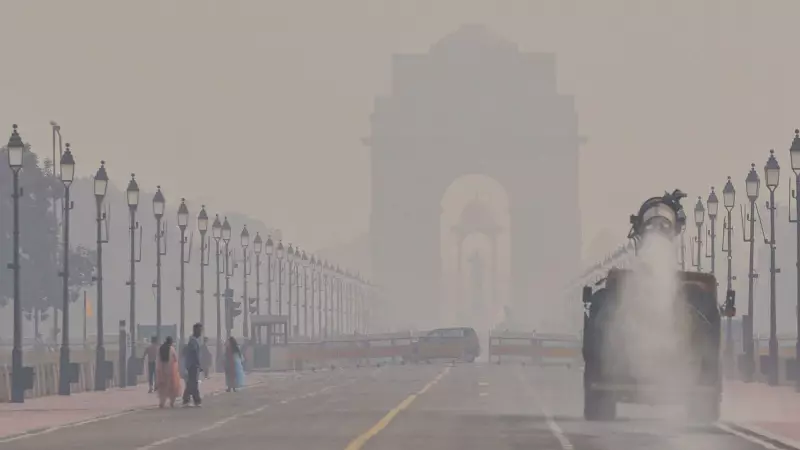
Delhi's air quality crisis has taken a controversial turn as former NITI Aayog CEO Amitabh Kant launched a scathing criticism against the Supreme Court's stance on firecrackers, accusing the judiciary of prioritizing the right to burn crackers over the fundamental right to breathe.
Health Emergency Unfolds in National Capital
As Delhi's Air Quality Index (AQI) plummeted to hazardous levels, touching nearly 500 in multiple monitoring stations, the city found itself engulfed in a thick, toxic smog. The severe pollution levels have triggered widespread health concerns among residents, particularly affecting children, elderly citizens, and those with pre-existing respiratory conditions.
Supreme Court's Firecracker Verdict Faces Backlash
The controversy stems from the Supreme Court's recent decision that permitted the burning of firecrackers during festive seasons, with certain restrictions. However, Amitabh Kant's sharp remarks highlight the growing tension between cultural traditions and public health priorities in India's pollution battle.
"The right to burn crackers has been prioritized over the right to breathe," Kant stated emphatically, capturing the frustration of environmental experts and healthcare professionals who have been warning about the severe consequences of air pollution on public health.
Delhi's Pollution Reality Check
The current air quality situation presents a grim picture:
- Multiple monitoring stations recording AQI levels close to 500
- Visible smog reducing visibility across the city
- Hospitals reporting increased cases of respiratory ailments
- Schools considering closure to protect children's health
- Outdoor activities becoming health hazards
Broader Implications for Public Health Policy
This development raises critical questions about balancing traditional practices with modern environmental concerns. The debate extends beyond immediate health impacts to address larger issues of sustainable development and the right to clean air as a fundamental human right.
Environmental activists and public health experts are increasingly concerned that without decisive action and stricter regulations, Delhi and other metropolitan cities in India might face recurring pollution crises with long-term consequences for public health and economic productivity.
The situation calls for urgent intervention from policymakers, judiciary, and citizens alike to find sustainable solutions that respect cultural traditions while safeguarding public health and environmental sustainability.





